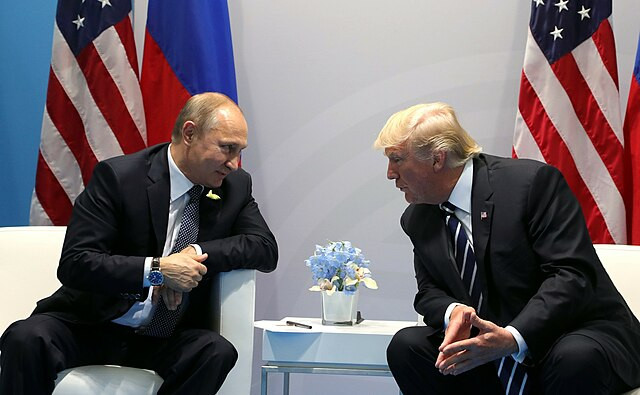A leaked diplomatic transcript has ignited controversy in Washington after revealing that a senior aide to U.S. President Donald Trump coached Russian officials on how to flatter the president while pushing a contentious peace plan for Ukraine. The document, obtained by Bloomberg News, details a 14 October conversation in which Trump's special envoy to Russia, Steve Witkoff, advised top Kremlin adviser Yuri Ushakov on rhetoric that could influence Trump's posture on negotiations.
The transcript shows Witkoff telling Ushakov that Russia "has always wanted a peace deal," while expressing his "deepest respect" for Russian President Vladimir Putin. He urged the Kremlin to begin outreach by praising Trump's role in the Gaza ceasefire, recommending that they present him as a "man of peace." According to the record, Witkoff suggested that Putin congratulate Trump directly and frame support for his diplomatic efforts as a foundation for Ukraine discussions.
The timing of the call quickly gained significance. Within days of the conversation, a 28-point peace plan surfaced-one that lawmakers and Ukraine analysts criticized as disproportionately aligned with Moscow's demands. The proposal reportedly included territorial concessions, limits on Ukraine's military capabilities and a commitment to forgo NATO membership.
During the call, Witkoff also floated his own ideas for a framework. The transcript quotes him saying, "I know what it's going to take to get a peace deal done: Donetsk and maybe a land swap somewhere," adding that such terms should be presented "hopefully," rather than explicitly. He proposed a "20-point peace plan" modeled on what he described as the administration's success with the Gaza ceasefire.
Bloomberg also reviewed a second transcript involving Kremlin-linked economic official Kirill Dmitriev, showing Ushakov instructing him to push Russia's "maximum position," even if Moscow expected only partial gains. Dmitriev indicated that the U.S. side could then present those positions as its own, a detail that has intensified scrutiny on the origins of the 28-point plan.
The White House has not challenged the transcript's authenticity. Communications director Steven Cheung said the document merely shows that Witkoff "talks to officials in both Russia and Ukraine nearly every day to achieve peace, which is exactly what President Trump appointed him to do." Speaking aboard Air Force One, Trump defended the tactics as "standard negotiating procedure," adding, "that's what a dealmaker does."
Critics across Congress, however, called the revelations dangerous. One U.S. representative said the transcript made Witkoff appear "like he is on Russia's payroll," arguing that the exchange undermined official diplomacy and validated long-standing concerns that Moscow sought to shape the peace framework through back-channel persuasion rather than formal negotiations.
The leak has cast fresh doubt on the legitimacy of the 28-point proposal, with diplomats noting similarities to a Russian "non-paper" circulated privately earlier this year. Ukrainian officials, already skeptical of the plan's concessions, now face growing pressure from NATO partners questioning its credibility.






